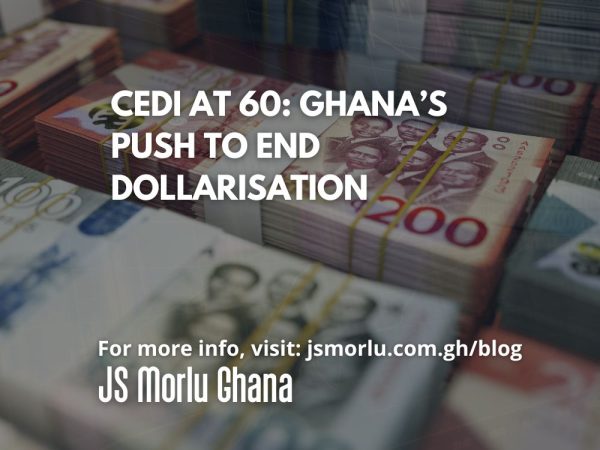How the Bank of Ghana’s New Push Could Shape a Stronger, More Resilient Cedi Economy
As Ghana celebrates 60 years of its national currency the cedi, the conversation isn’t just about history. It’s about the future of financial independence, stability, and the everyday power of the Ghanaian economy.
During the IMF/World Bank Governor Talk Series in Washington, D.C., Dr. Johnson Asiama, Governor of the Bank of Ghana (BoG), reignited a long-standing national debate: Why is Ghana still battling dollarisation, and how can the cedi reclaim its rightful place as the country’s sole medium of exchange?

Understanding Dollarisation: The Cedi’s Persistent Shadow
Dollarisation, using the U.S. dollar in local transactions has quietly shaped Ghana’s economy for decades. While many see it as a practical response to exchange rate volatility, it poses deeper risks:
- It weakens the BoG’s control over monetary policy.
- It distorts inflation data and pricing systems.
- It undermines national confidence in the cedi itself.
Dr. Asiama put it plainly: “I started central banking 30 years ago. The phenomenon has been there. So, we are tackling it.” His message is clear Ghana can’t achieve economic sovereignty without faith in its own currency.
Cedi at 60: More Than a Celebration
On October 28, Ghana will mark the Cedi at 60 milestone. But this isn’t just a ceremonial event it’s a call to action. The celebration aims to spark a new national movement toward prioritizing the cedi in all domestic transactions.
Dr. Asiama describes the initiative as both symbolic and practical:
“When we use the local currency in all transactions, that enhances the efficiency of monetary policy… I want to be remembered for making the local currency the currency of choice.”
This shift could reshape how Ghanaians perceive value, save money, and conduct business. The greater the local adoption, the stronger the cedi becomes.

Why Dollarisation Persists and What Can Be Done
Despite government regulations discouraging foreign currency pricing, dollarisation continues in sectors like real estate, import trade, and private education. The reasons are complex:
- Exchange rate volatility: Businesses hedge risks with the dollar.
- Confidence gaps: Past currency fluctuations eroded trust in the cedi.
- External dependencies: Ghana’s import-driven economy creates natural demand for the dollar.
To reverse this, the BoG is pursuing a multi-pronged strategy:
- Strengthening macroeconomic stability through inflation targeting and foreign reserve management.
- Increasing cedi liquidity and access across banking channels.
- Public education campaigns to restore confidence in the local currency.
This approach echoes successful de-dollarisation efforts in countries like Peru and Israel, where central banks coupled policy consistency with communication to rebuild trust.
The Bigger Picture: Economic Independence and Policy Efficiency
At its heart, the dollarisation issue reflects something deeper a nation’s confidence in its economic destiny. The more citizens and businesses trust their local currency, the more resilient and responsive monetary policy becomes.
When Ghana conducts trade, savings, and pricing in cedis, the BoG gains the ability to:
- Better control inflation
- Manage interest rates more effectively
- Strengthen macroeconomic forecasting
- Build a sustainable growth model less tied to foreign exchange pressures
That’s not just good economics it’s national empowerment.

Looking Ahead: The Cedi’s Next Chapter
The Cedi at 60 celebration could mark a turning point a symbolic “reset” for Ghana’s financial identity. But success won’t depend on ceremonies or speeches. It will depend on collective action from policymakers, businesses, and citizens.
The message is simple:
The cedi isn’t just a medium of exchange it’s a reflection of Ghana’s confidence in itself.
If Ghana embraces that mindset, the next 60 years of the cedi could be defined not by dollar dependence, but by economic resilience, innovation, and national pride.
